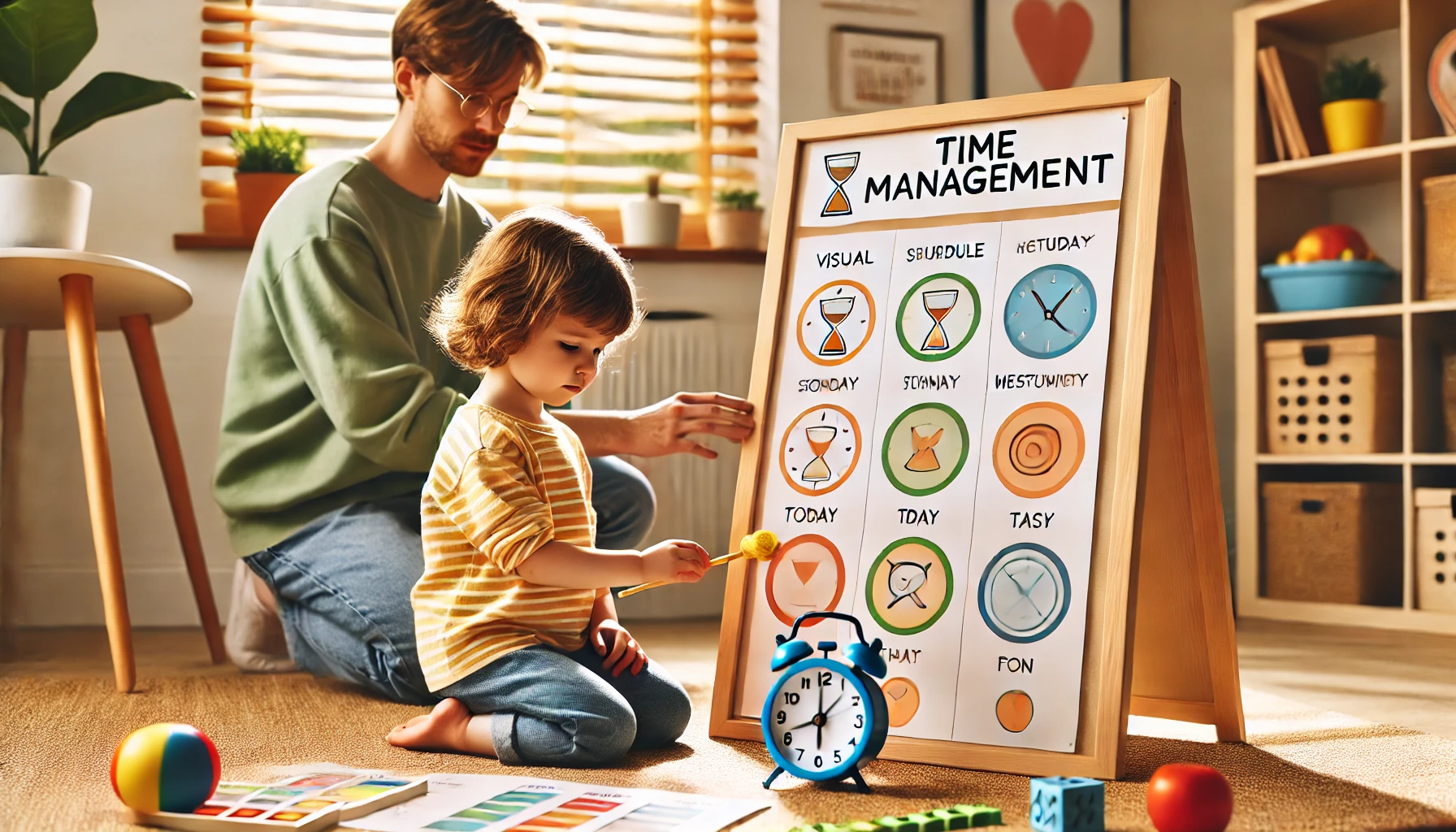How to Teach Time Management Skills to Young Children at Home
Time management is an essential skill that helps children develop responsibility, organization, and independence. Teaching young children how to manage their time effectively allows them to complete tasks, follow routines, and balance learning with play. In this article, we’ll explore fun and practical ways to help children develop time management skills at home.
Why Time Management is Important for Children
- Encourages responsibility – Helps children understand the importance of completing tasks on time.
- Reduces stress and frustration – Creates structure and minimizes last-minute rushing.
- Improves organization – Teaches children how to plan their day and follow routines.
- Enhances focus and productivity – Helps children stay on track and complete activities efficiently.
- Builds independence – Encourages children to manage their own tasks without constant reminders.
1. Establish a Daily Routine
A consistent routine helps children understand what to expect and when.
Activity Idea:
- Create a simple morning and bedtime routine with visual schedules.
- Use a chart or checklist to help children track their daily tasks.
- Set regular times for meals, play, learning, and rest.
What Kids Learn:
- Structure and organization
- How to follow a schedule
- Responsibility for completing tasks
2. Use Timers to Teach Time Awareness
Understanding how long tasks take helps children improve time management.
Activity Idea:
- Use a sand timer or a kitchen timer for short activities like brushing teeth or cleaning up.
- Set a timer for playtime and learning activities to help children transition smoothly.
- Play “beat the timer” games to make tasks more engaging.
What Kids Learn:
- Time awareness
- Transitioning between activities
- Self-discipline in managing time
3. Introduce a Visual Schedule or Calendar
A visual representation of time helps children plan their day.
Activity Idea:
- Use a wall calendar or a whiteboard to mark important events.
- Let children place stickers or drawings on scheduled activities.
- Teach the days of the week and months using fun songs and visuals.
What Kids Learn:
- Planning ahead
- Recognizing daily and weekly schedules
- The concept of time progression
4. Teach the Importance of Prioritizing Tasks
Helping children understand the difference between essential and optional tasks fosters organization.
Activity Idea:
- Use a “must-do” and “want-to-do” list to help children prioritize tasks.
- Encourage completing responsibilities (e.g., homework) before leisure activities.
- Guide children in setting small goals for the day.
What Kids Learn:
- Decision-making skills
- Balancing responsibilities with fun
- How to plan and prioritize
5. Encourage Responsibility with Simple Time-Based Tasks
Assigning small tasks with time limits helps children develop accountability.
Activity Idea:
- Set a challenge: “Let’s see if we can clean up in five minutes!”
- Encourage them to help with setting the table or feeding a pet at a specific time.
- Reward consistent time management with praise or small incentives.
What Kids Learn:
- Completing tasks efficiently
- Taking ownership of responsibilities
- Building confidence in managing time
6. Limit Screen Time and Encourage Active Play
Balancing screen time with other activities ensures a well-managed day.
Activity Idea:
- Set a specific time limit for screens and encourage reading, crafts, or outdoor play.
- Use a timer to signal the end of screen time.
- Involve children in choosing their non-screen activities.
What Kids Learn:
- Self-regulation
- Making healthier activity choices
- Finding balance in daily routines
7. Model Good Time Management Skills
Children learn best by observing how adults manage their time.
Activity Idea:
- Talk about your own schedule: “I’m finishing work now, and then we’ll have dinner together.”
- Show how to plan tasks and set reminders.
- Demonstrate completing tasks before taking breaks.
What Kids Learn:
- The importance of planning
- How to manage responsibilities
- Healthy time habits
8. Celebrate Progress and Small Achievements
Encouragement helps children stay motivated to improve their time management skills.
Activity Idea:
- Praise children when they complete tasks on time.
- Create a reward system with stickers or a simple “success chart.”
- Ask, “How did it feel to finish your tasks on time today?”
What Kids Learn:
- Motivation to manage time well
- The value of consistency
- Self-reflection on accomplishments
Final Thoughts
Teaching time management skills to young children helps them develop responsibility, organization, and independence. By using visual schedules, timers, and fun challenges, parents can help children build good time habits that will benefit them throughout life.
